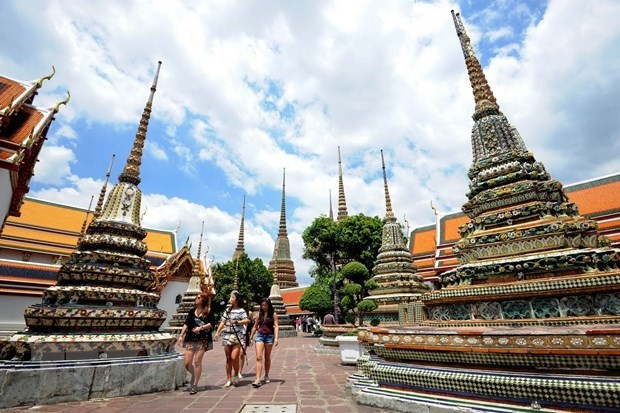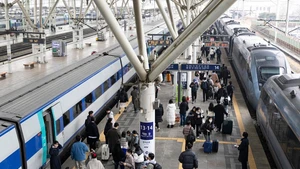According to a UNWTO report, there were 917 million tourist arrivals globally last year, up from 455 million in 2021, thanks to the lifting of travel restrictions due to the pandemic.
UNWTO forecasted that the number of international tourists in 2030 will reach about 1.8 billion, of which Southeast Asia will become the world's fourth-largest tourist attraction, with 187 million arrivals.
The impressive figures and bright forecasts of UNWTO are the aspiration of many countries over the past three years, especially those whose budget revenues depend heavily on tourism.
Spain is a typical bright spot in tourism revenue. According to a recently-released report by the Spanish Federation of Travel Agencies, the country's budget revenue from the tourism industry in 2022 has increased sharply, exceeding the pre-pandemic levels.
Accordingly, in 2022, the smokeless industry will bring Spain up to 159 billion EUR (172 billion USD) in revenue, an increase of 1.4% compared to 2019. Notably, Spain's tourism industry increased sharply in the second half of last year, marking a full recovery.
Although the number of foreign visitors to Spain in 2022 was still 14.6% lower than in 2021, their spending has increased sharply. This shows that the decrease in tourist numbers has been offset by longer travel times and a tendency to purchase high-end tourism products. Tourism is a spearhead industry, accounting for 12.2% of the Spanish economy in 2022.
After nearly three years of being severely damaged by the COVID-19 epidemic, the tourism industry in Japan in general and Oita Prefecture, in particular, is recovering strongly. Before the pandemic, Oita Prefecture - located on the southwestern Japanese island of Kyushu - was one of the most attractive destinations for tourists, thanks to its unique food culture, beautiful natural scenery and hot springs, which are very good for human health.
Oita Governor Katsusada Hirose shared that in Oita, the tourism industry has been hit hardest by the COVID-19 epidemic. Before the pandemic, the prefecture used to welcome up to 7.9 million visitors a year. However, when the epidemic broke out, almost no tourists came here.
To remove difficulties for the tourism industry, the Japanese Government has come up with many solutions to stimulate domestic tourism, including the "Go To Travel" programme implemented from the beginning of July 2020 to the beginning of 2021, and the National Travel Discount Programme from October 2022 to the present.
These programmes partially subsidise the travel expenses for domestic tourists in the amount of 11,000 JPY (76 USD) per person a day, deducted directly from travel expenses or in the form of promotional vouchers, that can be used to pay for meals, shopping and accommodation.
These programmes immediately breathed new life into the Japanese tourism industry by helping to bring customers back to travel and dining establishments. Governor Katsusada Hirose said that the number of domestic tourists to Oita Prefecture has increased by nearly 80% compared to the pre-pandemic period.
The Tourism Authority of Thailand announced that in 2023, “the Land of Smiles" is expected to welcome at least 25 million foreign tourists. Revenue from domestic and foreign tourists this year was estimated at 2.4 trillion THB (about 72 billion USD), equivalent to 80% of the pre-pandemic levels.
The Singapore Tourism Board (STB) said that the number of international visitors to the Lion Island in 2022 reached 6.3 million, equivalent to 33% of the pre-pandemic levels, exceeding the previous STB's forecast of 4-6 million visits, bringing in a revenue of 14 billion SGD (more than 10 billion USD). Singapore officials forecasted that the number of international visitors to the country will increase to 12-14 million in 2023, bringing in revenue of 18-21 billion SGD and returning to the pre-pandemic levels by 2024.
The epidemic is gradually under control, the blockade measures have been lifted and the stimulus policies of many countries have blown a “warm wind” into the tourism industry, helping the smokeless industry gradually return to a normal state, and expected to be more vibrant than the pre-pandemic period.
















